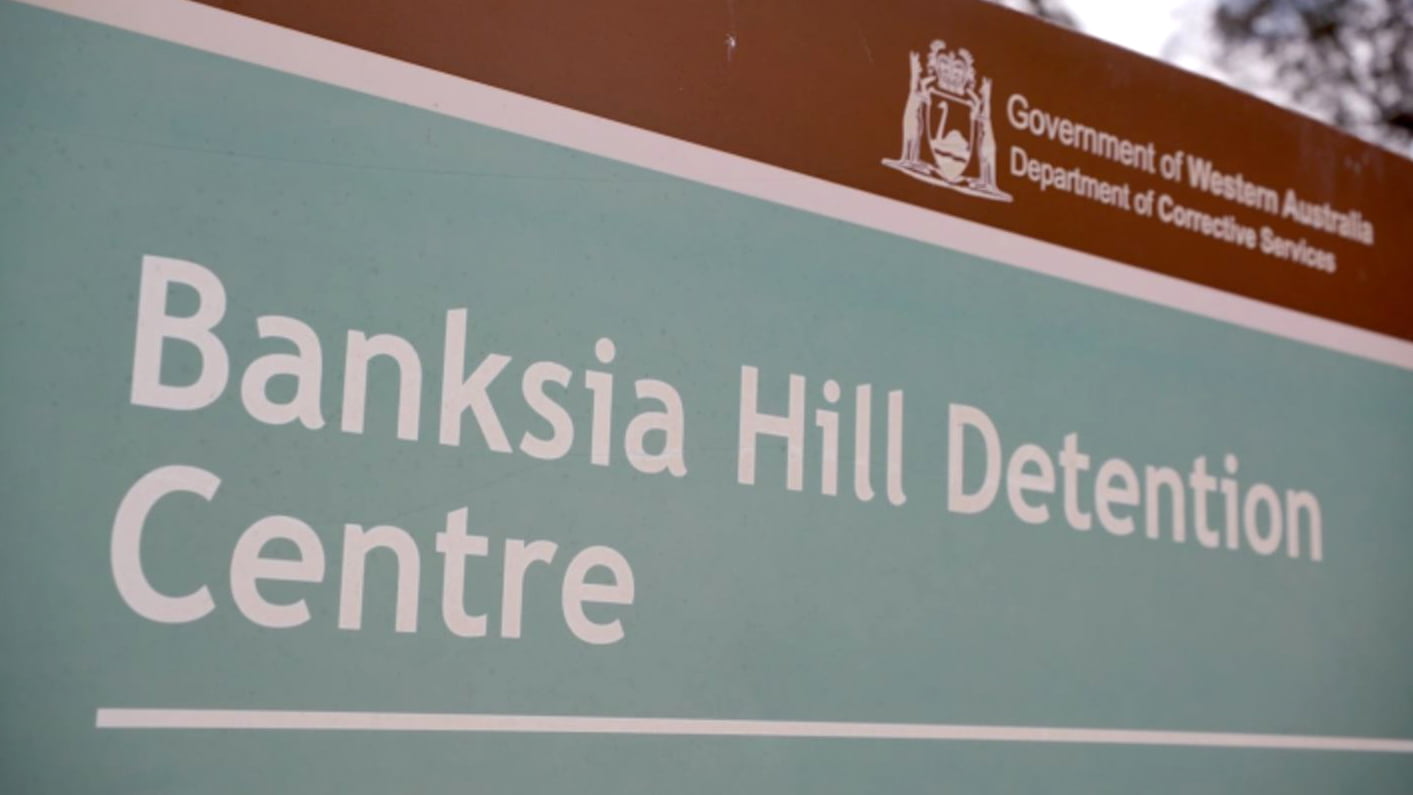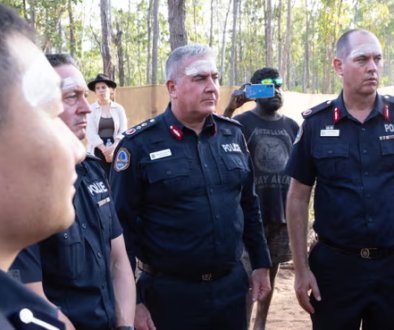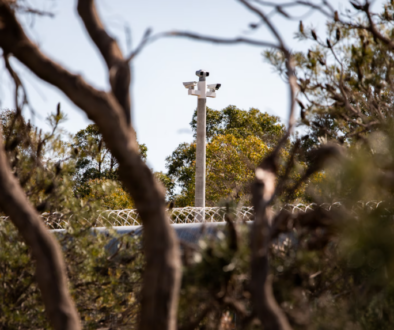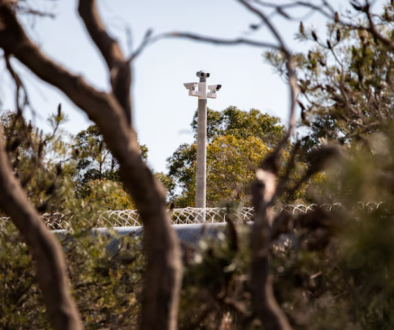
Federal government urged to intervene in ‘dire’ WA child detention situation
Originally published on nit.com.au written by Giovanni Torre
The law firm acting for Banksia Hill juvenile detention centre prisoners has urged the Federal Government to intervene in Western Australia’s management of incarcerated children.
Levitt Robinson is representing current and former detainees in a complaint to the Australian Human Rights Commission.
Senior partner Stewart Levitt said the children, most of whom were Indigenous, transferred from Banksia Hill to the maximum-security adult prison Casuarina in July were being subjected to poor psychological and physical treatment.
Mr Levitt said the Federal Government had powers to become involved in matters where evidence of mistreatment of Indigenous children was clear.
“It is one thing to shed tears about the Uluṟu Statement and quite another to save young lives which are being destroyed even while the referendum question to be put to voters is being drafted,” he said.
Solicitor Dana Levitt, who is preparing a class action against the Western Australian government over Banksia Hill, said National Principles for Child Safety Organisations have been serially and seriously breached by the West Australian Government.
“There is the notable absence of suitably trained prison officers and serious operational constraints at Casuarina, which make the rehabilitation of the kids there an even more remote possibility, than had they been continued to be interned at Banksia Hill, which at least is a purpose-built facility for juveniles,” she said.
Last week it was revealed that in just five weeks there had been 52 incidents of self-harm and four attempted suicides in Banksia Hill and Unit 18.
A spokesperson for WA’s Department of Justice declined to comment on the case.
“The Department would like to clarify however that the young people at Unit 18 are being managed by trained youth custodial officers supported by a range of professionals such as teachers and mental health nurses, psychologists and mentors,” the spokesperson said.
Indigenous law academic and international human rights expert Hannah McGlade said the situation is a “dire” breach of the children’s rights under international law.
“Clearly it can never be the best interests of a child to be incarcerated in any adult prison,” she said.
“The fact that several youths attempted self-harm evidences the serious trauma and abuse they felt.
“Australia has not signed the Optional Protocol (Communication) to the Convention on the Rights of the Child which provides all Australian children and youth a right to communicate to the UN Committee on the Rights of the Child, who oversee the Convention. Aboriginal children and youth have every right to be heard about human rights abuses in this country.”
Ms McGlade said the Federal Government could not turn a blind eye to the situation if it was serious about repairing its international reputation.
“We need to see federal leadership and action in this matter because it concerns the lives of children and youth who are clearly at risk,” she said.
A spokesperson for Federal Attorney General Mark Dreyfus said the issue was raised at last Friday’s meeting with state and territory attorneys-general.
“The government will continue to work with Western Australia, and all the states and territories, to improve the care of children in detention,” he said.
The same meeting agreed the age of criminal responsibility working group would develop a proposal to increase the minimum age of criminal responsibility, currently 10, and implement UN conventions to stamp out cruel, inhuman or degrading treatment or punishment before January 20, 2023.

Federal government urged to intervene in ‘dire’ WA child detention situation
Originally published on nit.com.au written by Giovanni Torre
The law firm acting for Banksia Hill juvenile detention centre prisoners has urged the Federal Government to intervene in Western Australia’s management of incarcerated children.
Levitt Robinson is representing current and former detainees in a complaint to the Australian Human Rights Commission.
Senior partner Stewart Levitt said the children, most of whom were Indigenous, transferred from Banksia Hill to the maximum-security adult prison Casuarina in July were being subjected to poor psychological and physical treatment.
Mr Levitt said the Federal Government had powers to become involved in matters where evidence of mistreatment of Indigenous children was clear.
“It is one thing to shed tears about the Uluṟu Statement and quite another to save young lives which are being destroyed even while the referendum question to be put to voters is being drafted,” he said.
Solicitor Dana Levitt, who is preparing a class action against the Western Australian government over Banksia Hill, said National Principles for Child Safety Organisations have been serially and seriously breached by the West Australian Government.
“There is the notable absence of suitably trained prison officers and serious operational constraints at Casuarina, which make the rehabilitation of the kids there an even more remote possibility, than had they been continued to be interned at Banksia Hill, which at least is a purpose-built facility for juveniles,” she said.
Last week it was revealed that in just five weeks there had been 52 incidents of self-harm and four attempted suicides in Banksia Hill and Unit 18.
A spokesperson for WA’s Department of Justice declined to comment on the case.
“The Department would like to clarify however that the young people at Unit 18 are being managed by trained youth custodial officers supported by a range of professionals such as teachers and mental health nurses, psychologists and mentors,” the spokesperson said.
Indigenous law academic and international human rights expert Hannah McGlade said the situation is a “dire” breach of the children’s rights under international law.
“Clearly it can never be the best interests of a child to be incarcerated in any adult prison,” she said.
“The fact that several youths attempted self-harm evidences the serious trauma and abuse they felt.
“Australia has not signed the Optional Protocol (Communication) to the Convention on the Rights of the Child which provides all Australian children and youth a right to communicate to the UN Committee on the Rights of the Child, who oversee the Convention. Aboriginal children and youth have every right to be heard about human rights abuses in this country.”
Ms McGlade said the Federal Government could not turn a blind eye to the situation if it was serious about repairing its international reputation.
“We need to see federal leadership and action in this matter because it concerns the lives of children and youth who are clearly at risk,” she said.
A spokesperson for Federal Attorney General Mark Dreyfus said the issue was raised at last Friday’s meeting with state and territory attorneys-general.
“The government will continue to work with Western Australia, and all the states and territories, to improve the care of children in detention,” he said.
The same meeting agreed the age of criminal responsibility working group would develop a proposal to increase the minimum age of criminal responsibility, currently 10, and implement UN conventions to stamp out cruel, inhuman or degrading treatment or punishment before January 20, 2023.



